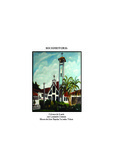Mostrar el registro sencillo del ítem
El contrabando de gasolina en Mara y la Guajira del Estado Zulia. Su implicación en la enseñanza de la historia y la geografía contemporánea
| dc.rights.license | http://creativecommons.org/licenses/by-nc-sa/3.0/ve/ | |
| dc.contributor.author | Rodríguez Arrieta, Marisol | |
| dc.contributor.author | Quintero, Khaterine | |
| dc.date.accessioned | 2014-07-15T12:27:33Z | |
| dc.date.available | 2014-07-15T12:27:33Z | |
| dc.date.issued | 2014-07-15T12:27:33Z | |
| dc.identifier.issn | 1316-7790 | |
| dc.identifier.uri | http://www.saber.ula.ve/handle/123456789/38836 | |
| dc.description.abstract | El trabajo de investigación tiene como propósito fundamental explicar el proceso histórico del contrabando de combustible como práctica permanente que ha devenido en problema social, político, económico y educativo en el occidente de la República Bolivariana de Venezuela, especialmente en los municipios Mara y la Guajira del Estado Zulia. En la última década creció el tráfico ilegal de gasolina y la masa de hombres y mujeres con distintas edades dedicados a esta actividad, cuyos actores sociales inician la ruta del comercio de gasolina desde la ciudad de Maracaibo, atraviesan las jurisdicciones de Mara y la Guajira, hasta llegar a la República de Colombia. El impacto social de esta práctica cotidiana es diverso y los efectos negativos obligan a incorporarla como tema ineludible en la enseñanza de la historia y geografía contemporánea, a los fines de contrarrestar y hallar una salida a este comercio ilegal que fluye por la frontera colombo-venezolana que incide en la deserción escolar, debido a los ingresos económicos que garantiza a los comerciantes. En este estudio se utilizó el método histórico como herramienta científica para el abordaje y análisis del tema. | es_VE |
| dc.language.iso | es | es_VE |
| dc.rights | info:eu-repo/semantics/openAccess | |
| dc.subject | Contrabando | es_VE |
| dc.subject | Gasolina | es_VE |
| dc.subject | Mara | es_VE |
| dc.subject | Guajira | es_VE |
| dc.subject | Zulia | es_VE |
| dc.subject | Colombia | es_VE |
| dc.title | El contrabando de gasolina en Mara y la Guajira del Estado Zulia. Su implicación en la enseñanza de la historia y la geografía contemporánea | es_VE |
| dc.title.alternative | Fuel smuggling in Mara and La Guajira Of Zulia state and its involvement on the teaching of contemporary history and geography | es_VE |
| dc.type | info:eu-repo/semantics/article | |
| dc.description.abstract1 | The research has as fundamental intention to explain the historical process of the fuel smuggling as activity that it has remained in the time and in the space and as contemporary social, political, economic and educational problem that nowadays faces the west of Venezuela specially the municipalities Mara and La Guajira of Zulia State. In the last ten years there has grown the illegal dealing of gasoline as well as the number of men and women of different ages turned into speculators, whose social actors initiate the route of the traffi c of gasoline from Maracaibo continues towards the jurisdictions of Mara and La Guajira up to coming to the republic of Colombia where it becomes effective the business. The social impact is diverse and the negative effects lead to the need of incorporating it as basic topic in the education of the subjects of history and geography into the purpose of facing and offsetting the stimulus that propitiates this trade together with the apathy and the school desertion motivated by the economic resources that guarantees the merchants. In the investigation was used the historical method as scientifi c tool for the boarding and analysis of the topic. | es_VE |
| dc.description.colacion | 93-114 | es_VE |
| dc.description.email | marisorr24@gmail.com | es_VE |
| dc.description.email | kathe_q@ hotmail.com | es_VE |
| dc.description.frecuencia | Semestral | |
| dc.identifier.depositolegal | 199802ME291 | |
| dc.identifier.eissn | 2244-8454 | |
| dc.subject.facultad | Núcleo Rafael Rangel (NURR) | es_VE |
| dc.subject.keywords | Smuggling | es_VE |
| dc.subject.keywords | Gasoline | es_VE |
| dc.subject.publicacionelectronica | Agora Trujillo | |
| dc.subject.seccion | Agora Trujillo: Sociohistória | es_VE |
| dc.subject.tipo | Revistas | es_VE |
| dc.type.media | Texto | es_VE |
Ficheros en el ítem
Este ítem aparece en la(s) siguiente(s) colección(ones)
-
Agora Trujillo - Año 016 - Nº 032
Julio - Diciembre 2013


